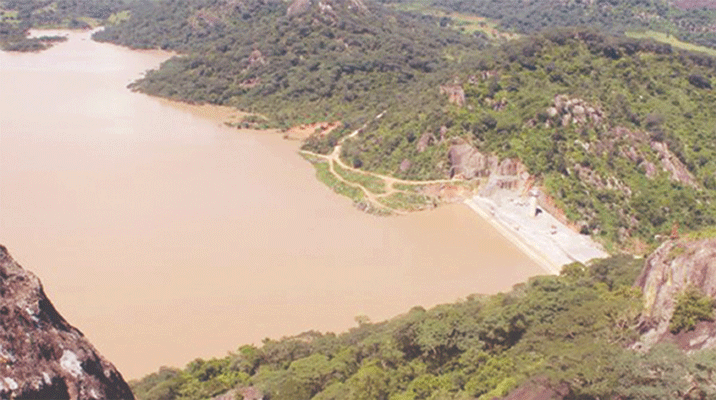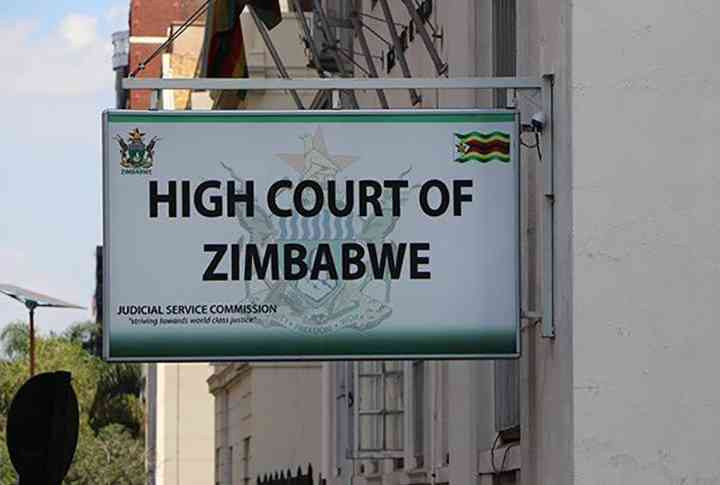
By Tatenda Chitagu
Masvingo City is the country’s first urban settlement, but when it comes to food security for the over 1,5 million inhabitants in the province, it is not a role model.
The province to which the city plays host remains the least food-insecure, year in, year out.
Currently, 1 496 000 people are getting food aid from government and non-governmental organisations in the province, according to provincial development coordinator Farai Mbetsa.
And the figure could increase as households in districts such as Mwenezi, Chivi, Bikita and Chiredzi harvested the staple maize that will last them for just three months or less, according to the second round crop and livestock report for the 2019/2020 farming season carried out by the ministry of Lands, Agriculture, Water and Rural Resettlement.
Ironically, the province has several dams at its disposal — among them the biggest and second largest inland water bodies in the country — which could irrigate vast swathes of arable land lying fallow.
The biggest water reservoir in the country is Tugwi Mukosi — which is 40,7% full — followed by Mutirikwi (formerly Kyle) Dam, which is 38% full, according to latest statistics availed by the Zimbabwe National Water Authority.
Other dams in Masvingo’s seven districts include Matezva, Mushandike, Siya, Tokwane, Manjirenji, Tugwane, Muzhwi, Nyajena, Bindangombe, Chedozvo, Chivake, Makwi, Nyatare, Musaverema, Magudu, Bangala and Manyuchi.
- Chamisa under fire over US$120K donation
- Mavhunga puts DeMbare into Chibuku quarterfinals
- Pension funds bet on Cabora Bassa oilfields
- Councils defy govt fire tender directive
Keep Reading
The dams also have the potential to spur tourism, create jobs and generate electricity.
Water in the 1,8 billion-cubic-metre Tugwi-Mukosi Dam is going to waste as there is no irrigation taking place, four years after its completion.
Save for a dozen fisheries licenced at the dam, Tugwi Mukosi — with a capacity to irrigate 26 000 hectares downstream — is slowly turning into a white elephant.
Government says it is yet to draft a masterplan so as to start harnessing Tugwi Mukosi water for irrigation purposes.
For other dams, Finance deputy minister Clemence Chiduwa admitted that irrigation infrastructure and mechanisation remained a challenge to harvest the water in the dams for crop production.
“We have a challenge of mechanisation and irrigation infrastructure development,” Chiduwa said.
“What is needed is funding. We made our fiscal intervention provided funding in the 2020 budget.
“[About] $382 million was allocated for irrigation development.
“This will see 10 irrigation schemes in Masvingo benefiting from an allocation of $48 million,” Chiduwa said at a maize seed field day held at Mwenezana Estates last week.
While there are 65 smallholder irrigation schemes in Masvingo province, most are now defunct mainly owing to old, vandalised irrigation infrastructure, siltation and lack of funding.
Chiduwa promised that these irrigation schemes, which have for long boosted food security and created employment for thousands of villagers over the years, would be revived.
“We also have the smallholder irrigation revitalisation programme. There is a budgetary allocation of $6,2 million for the revival of Chilonga irrigation scheme; $14 million for Muzhwi and $1,5 million for Manyuchi,” he said.
“We are targeting many hectares of irrigation in Masvingo province under the revitalisation programme.”
Some of the smallholder irrigation schemes to be revived in Masvingo are Fuve, Panganai, Musavengana, Tshovani, Matezva and Maboke, according to Chiduwa.
Vice-President Constantino Chiwenga, who was the guest of honour at the maize seed project event, said the vast water bodies in the country should be fully utilised.
“Where there are water bodies, there should be crop farming under irrigation,” Chiwenga said.
“We keep releasing water in our dams to the Indian Ocean. Let us use that water.
“Places like Masvingo and others with many dams should lead in all-year-round crop production under irrigation facilities..
“Masvingo can put 10 000 hectares under winter maize.
“The province has many irrigation schemes which will change the fortunes of this province and Zimbabwe at large.
“We should work for ourselves. “This is no longer time for begging food from other countries.”
Until such a time when the many dams in Masvingo province are fully utilised and irrigation schemes are revived and new ones established, all that glittering water will not be gold, and the province — and country at large — will remain a perennial candidate for food aid.









